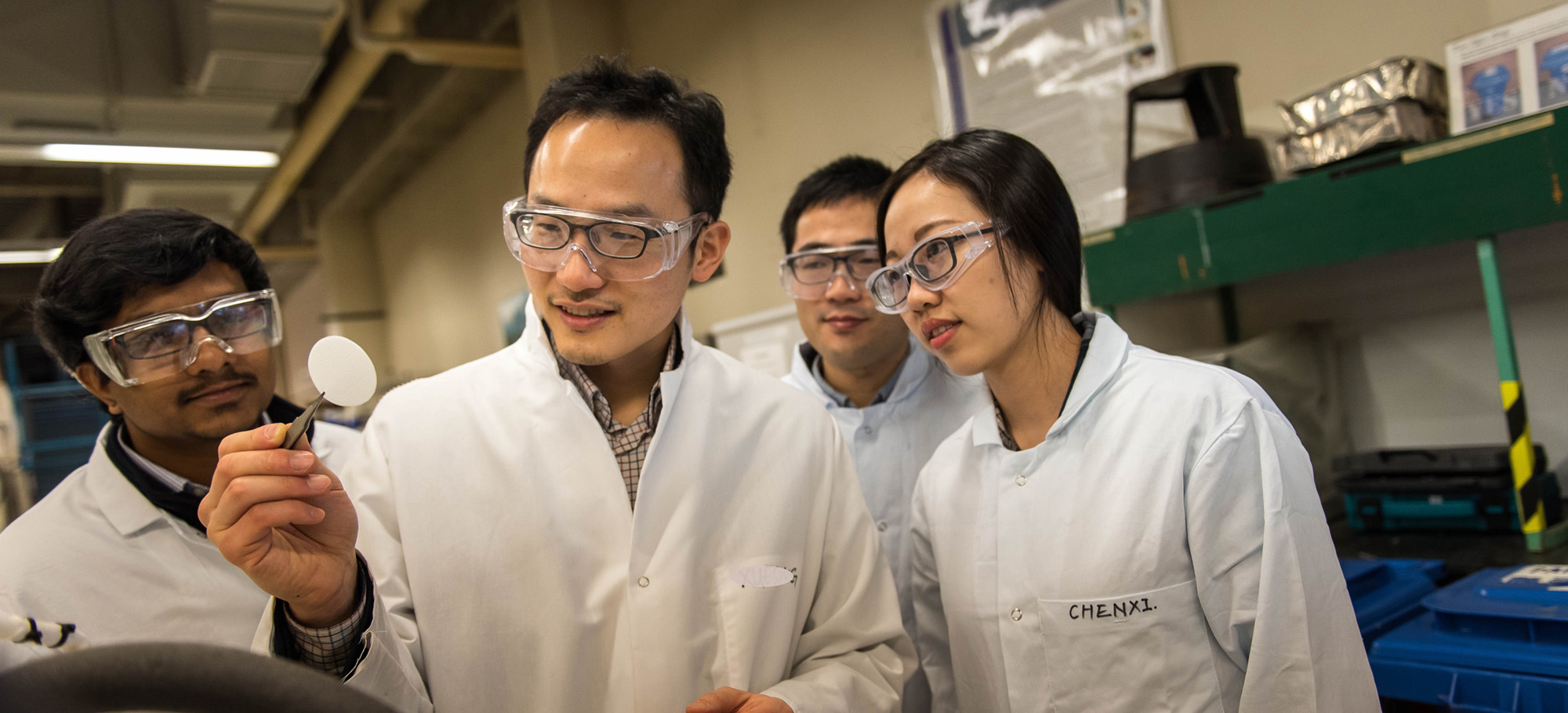UBC Civil Engineering Assistant Professor Jongho Lee has received the New Frontiers in Research Fund (NFRF) grant to develop a tri-layer film that mimics natural trees’ water management function – a technology that will help build extreme weather-resilient cities.
A naturally effective dewatering instrument, a tree transpires 97% of the water absorbed by its roots to the atmosphere. This technology aims to mimic this mechanism.
“By attaching the film onto existing buildings, we aim to transform them into a giant forest of artificial trees for fast stormwater removal in excessive rainfall events and effective cooling in extreme hot weathers,” said Dr. Lee.
Although current green infrastructure such as green roofs and rain gardens are effective in stormwater control, retrofitting presents challenges, especially in densely laid out cities where space is scarce.
Attaching this film to existing buildings will not require any additional space.
Dr. Lee and his researchers have been granted $250,000 over two years to work on this project. In this first phase, they will develop the tri-layer film and demonstrate its capabilities on a small scale by installing it on a building on the UBC Vancouver campus.
The idea for this film evolved from Dr. Lee’s previous work on constructing an artificial mangrove tree for desalination.
A collaboration between multiple disciplines, this project is being co-developed with Dr. Feng Jiang from UBC Forestry and Dr. Simcha Srebnik from UBC CHBE, who bring their expertise in plant hydraulics and molecular dynamics, respectively.
Dr. Lee and his collaborators have aligned their project with the Rain City Strategy developed by the City of Vancouver. They hope to bring the City on as a potential collaborator in the future.
To learn more about Dr. Jongho Lee and his research, please visit his Faculty Profile. You may also learn about the perspectives of stormwater control using artificial trees as described in his recent article.
